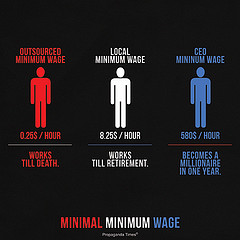Despite all the news about an icy “polar vortex” currently gripping the United States, debates over climate change were quite heated at the United Nations Climate Summit. In a recent interview addressing the protests at this year’s conference, Greenpeace Executive Director, Kumi Naidoo said, “Our message to our political leaders is that nature does not negotiate…You can’t change the science — we have to change political will.” Recent figures indicate that greenhouse gas emissions in the atmosphere are at an all-time high, and The World Meteorological Organization projects greenhouse gas emissions will be 12 billion tons higher in 2020. Such an increase will likely result in a temperature rise of more than 2 degrees Celsius. As greenhouse gas emissions rise, so are anxieties among many social scientists.
Sociological research suggests that the culture of organizations within the environmental movement itself is responsible for the lack of traction on addressing climate change.
- Brulle, Robert and Jenkins, J. C. 2008, Spring. “Fixing the Bungled U.S. Environmental Movement.” Contexts. 7: 14-19.
Which countries are more likely to take a seat at the negotiating table? The following study offers some predictions based on a macro-level analysis of global inequalities between rich and poor countries.
- Roberts, J. T. 1996. “Predicting Participation in Environmental Treaties: A World-System Analysis.” Sociological Inquiry. 66(1): 38-57.

